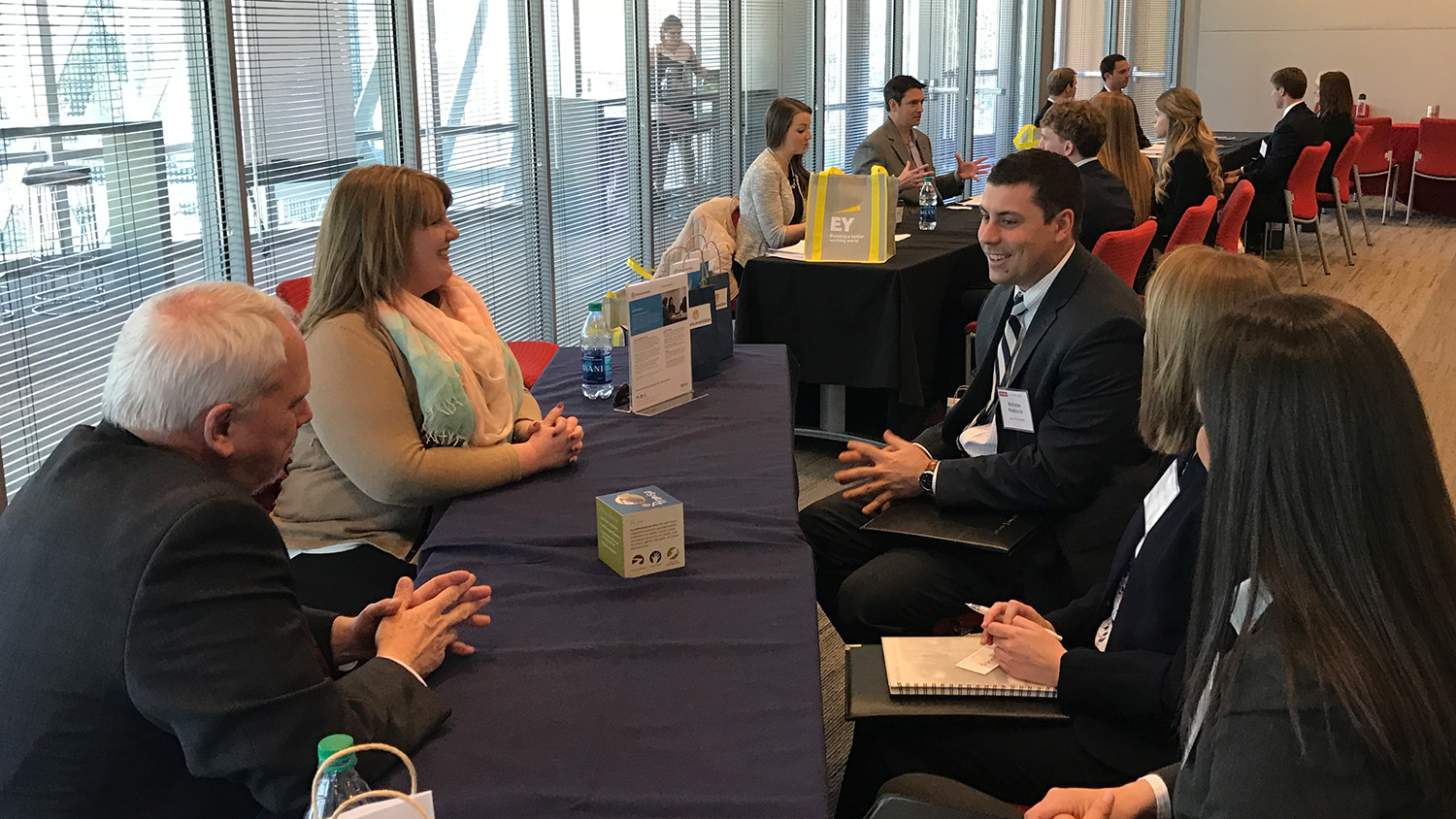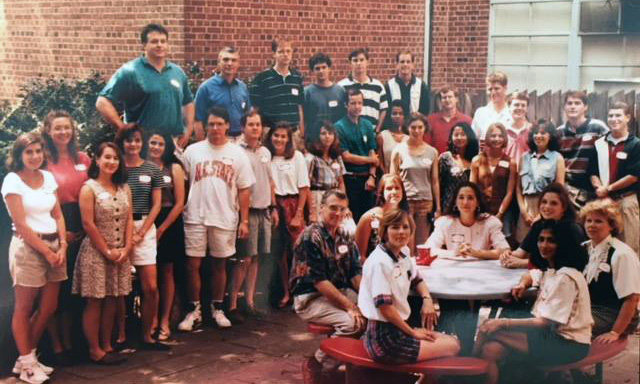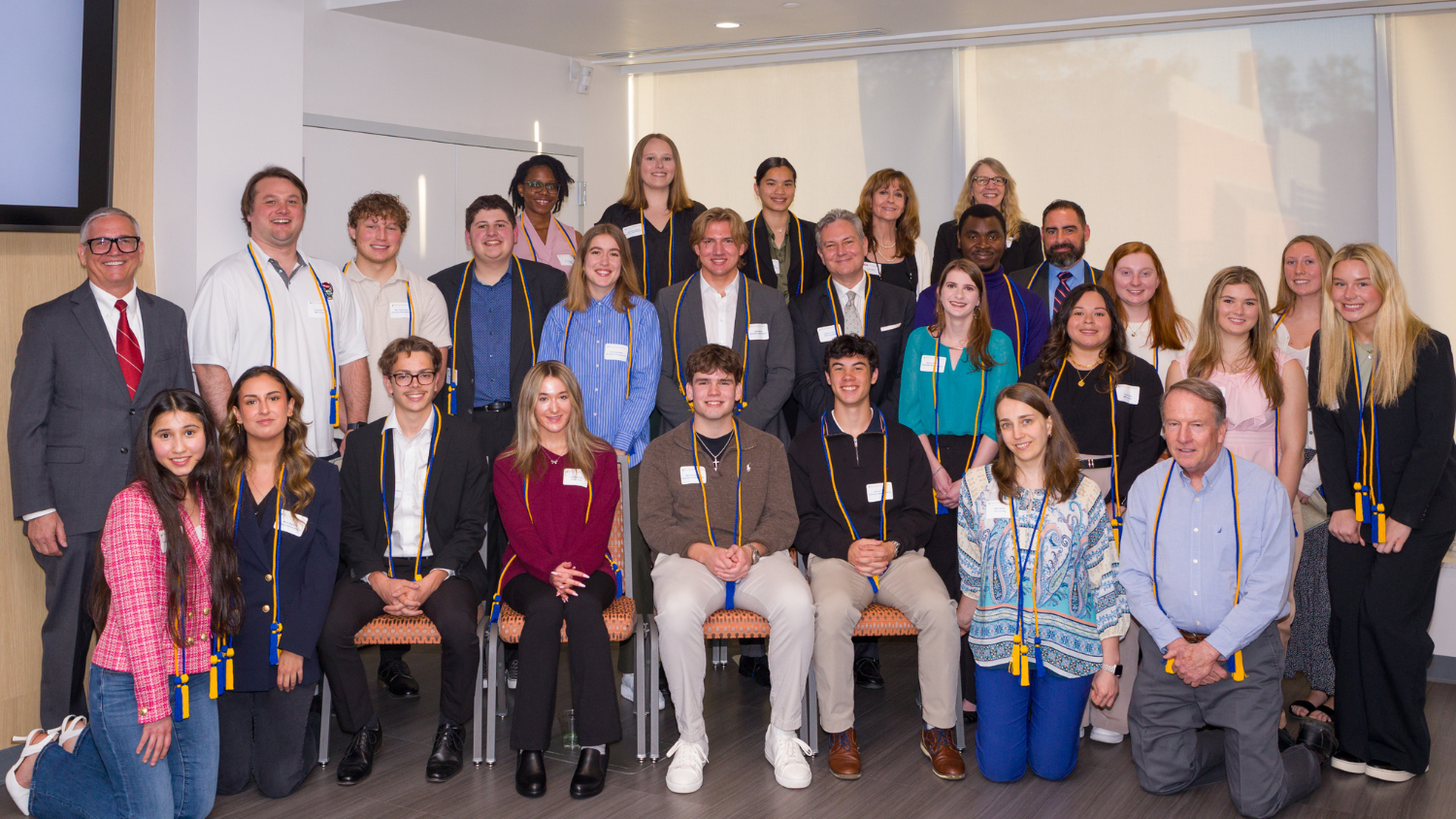NC State Jenkins MAC Program Celebrates 25th Anniversary

Accounting courses have been taught at NC State University since before there was a College of Management, with the accounting department’s founding department head, Carl Messere, and other members of the faculty forging strong connections with professionals in the area.

In 1994, just two years after the College of Management was established at NC State, its faculty created the Master of Accounting (MAC) program – the college’s first new graduate program and now one of five Jenkins Graduate Programs based in the Poole College of Management. This fall, the Jenkins MAC program welcomed its 25th cohort.
Craig Lupton-Smith – one of 35 students in that first MAC cohort – said the program’s “healthy balance of technical studies linked to real world case studies” led him to apply to what is now the NC State Jenkins MAC program. That balance, he said, “was instrumental in acclimating me to the business world.” (Read his story here.)
A majority of the program’s graduates go into public accounting, with the rest taking related positions with corporations. And some, like Lupton-Smith, move between the two career paths. Another alumus, Jared Plummer (’07), took the entrepreneurial route. After working a while in public accounting, he launched the Two Roosters Ice Cream shop in Raleigh in 2017. He started selling his ice cream out of a blue and white camper and now operates two brick and mortar locations – evidence that the accounting degree can take you wherever you want to go.
Growing Enrollment, Program Options

“Enrollment grew to about 60 students within three years after creation, and the program now typically has between 110 and 125 students,” said Kathy Krawczyk, Dixon Hughes Professor of Accounting. She was the MAC program director from 2005 to 2018, succeeding Professor Robert Peace, who led the program for its first 10 years.
The college’s early relationships with the accounting industry have thrived, leading to scholarships, internships, faculty support and research opportunities, as well as a strong career pipeline for today’s graduates.
Many students come to the Jenkins MAC program from universities other than NC State, with 40 percent of the current MAC class having undergraduate degrees from another university. Prospective students can learn about the program from posts on the Jenkins MAC program’s Student Life blog and social media accounts: Facebook | Twitter | Instagram.
In 2007, the MAC Program introduced the AIR (Accounting Internship Recruiting) Program, an opportunity for Poole College’s undergraduate accounting students planning to apply to the MAC program to secure accounting internships for the spring or summer during or after their senior year. A majority of AIR students enroll in the Jenkins MAC program with a full time job offer from their internship.
Seventy to 75 percent of students in the program receive some form of merit-based financial aid, including MAC fellowships, scholarships and graduate assistantships supported by Big Four and national professional service firms, top-ranked regional firms, the NC State Graduate School, Poole College’s Department of Accounting and alumni and friends of the program.
Future-Focused Leadership
Earlier this year, Krawczyk stepped down from her role as director of the MAC program, returning to teaching. She also is interim head of the Department of Accounting, filling a vacancy as former department head Frank Buckless is serving as interim dean of the college.

The new MAC program director is Scott Showalter, who joined the Poole College accounting department in 2008 as professor of practice after retiring from KPMG. He brought decades of hands-on industry experience and currently serves in leadership roles within the North Carolina Association of Certified Public Accountants and the Federal Accounting Advisory Standards Board. Teaching remains his passion, though, and he maintains a full teaching load. (Read more about Professor Showalter here.)
While continuing its balance of technical and applied learning, the Jenkins MAC program has also created paths for specialization, with optional concentrations in enterprise risk management, information technology and tax strategy. Elective courses are taught by Poole College accounting professors as well as professors teaching in the Jenkins MBA program and NC State’s Department of Public Administration.
“Our students learn through the active integration of teaching, research and engagement, taught by faculty with both research-based knowledge and real-world experience in various areas of accounting and related disciplines,” Krawczyk said.
She had joined the newly established College of Management as assistant professor in 1992, soon after receiving her doctorate in accounting from the University of Texas. Krawczyk said she was drawn to the then-new college after “seeing the possibilities in the accounting department,” noting faculty members like Professor Roby Sawyers, whose tax-related research interests aligned with her own. From the start, she taught in and was involved with the development the new MAC program, including creation of the audit and tax concentrations while also continuing her research in areas of tax, finance and audit.
Aligned with Industry Needs
“As the program evolved, we updated our concentrations and courses to align with changing needs identified by accounting firms,” Krawczyk said. The program’s first two concentrations were in enterprise risk management and information technology. A tax strategy concentration was added in 2017, and an online Tax, Technology and Analytics Certificate program, offered through NC State Executive Education based in Poole College, provides an additional professional development option.
MAC students have the opportunity to increase their global perspective by taking a MAC course in Prague over the summer. The course, taught by a MAC faculty member, changes each year. Such options attract students who recognize that these courses will prepare them to bring greater value to their firms upon graduation.
“Accounting is a very dynamic field that has evolved a great deal from the old ways – practices that led to the Sarbanes Oxley Act,” Showalter said. “The introduction of data analytics and innovative technologies …. provides the opportunities for the greatest change in the accounting profession since the passage of the Securities Act of 1933 and the Securities Exchange Act of 1934,” he states in an October 1, 2018, edition of Accounting Today.
“Here at Poole College, we are looking at ways to increase flexibility and depth in our Jenkins MAC program, including increasing analytics and adding online courses,” he said. Feedback from focus groups, including students, recruiters, and, increasingly alumni, continue to guide changes in the program, he said.
Focused on Student Success

Recognizing that not all students aspiring to enter the MAC program have taken accounting courses as undergraduates, the MAC program in 2017 launched its Accelerated Summer Accounting Prerequisite (ASAP) Program.
This optional five-week summer bridge program enables students who had completed non-accounting undergraduate majors with a 3.2 or higher grade point average and were admitted to the Jenkins MAC Program to acquire a foundation in fundamental accounting concepts and topics. ASAP class sizes are small – typically 10 to 15 students – and are taught by the accounting department’s qualified accounting faculty.
This focus on student success and industry needs is reflected in the Jenkins MAC program’s strong placement rate for its graduates: 95 to 100 percent of students are employed by graduation. Students launch careers with Big Four and middle-market firms in locations across the country including: Atlanta, Boston, Charlotte, Greensboro, New York, Raleigh, San Francisco and the Washington Metro region.
“Expect the Jenkins MAC program to continue evolving, as we continue to tailor it to provide the best program for our students,” Showalter said.
- Categories:


